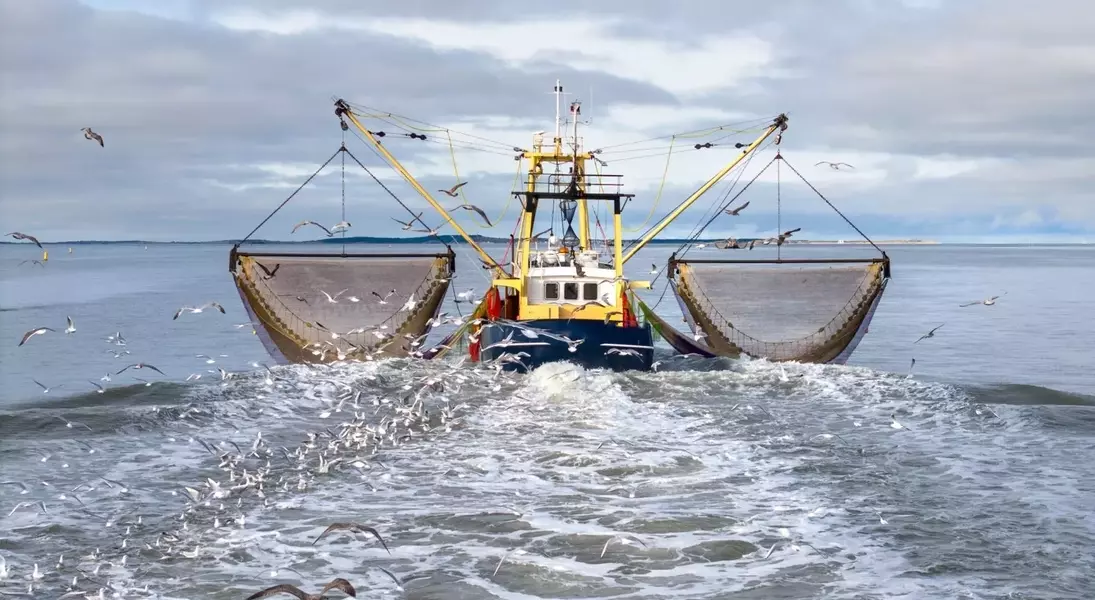
In an unprecedented revelation, the true impact of bottom trawling has been unveiled through a unique perspective from the ocean floor. This method of fishing, which involves dragging heavy nets along the seabed, is now captured in Sir David Attenborough’s documentary "OCEAN." The footage reveals marine creatures such as cephalopods and rays fleeing in panic as their habitat is obliterated by massive metal and rope structures. This alarming evidence supports Attenborough's urgent call to action: safeguarding the sea equates to preserving the planet. Satellite imagery further corroborates this destruction, showcasing extensive sediment plumes stretching for kilometers left behind by trawlers. Research indicates that trawling can eliminate up to 41% of seabed biodiversity, with recovery periods exceeding six years.
This destructive practice accounts for nearly a quarter of all wild-caught seafood, with discard rates reaching as high as 75%. However, Attenborough emphasizes potential solutions rather than despair. By establishing marine protected areas, significant ecological benefits have been observed. For instance, Lyme Bay in the UK witnessed a 95% increase in reef species and a 400% rise in fish diversity within fifteen years. Moreover, the phenomenon of "spillover" enhances neighboring fisheries' productivity.
With only a fraction of the ocean under protection, the upcoming 2025 UN Ocean Conference presents a pivotal opportunity for change. Attenborough highlights the ocean's remarkable regenerative capacity if given the chance. Advocacy for sustainable practices, including plant-based alternatives and marine sanctuaries, offers a promising path forward.
Efforts to combat bottom trawling's devastation extend beyond legislation. Simple lifestyle changes, like reducing seafood consumption and supporting eco-conscious brands, contribute significantly to ocean conservation. As Attenborough articulates, protecting the oceans transcends saving marine life—it ensures humanity's survival. Public awareness and action are crucial in fostering a healthier planet for future generations.
The message resonates clearly: our choices today shape tomorrow's world. Through collective effort and informed decisions, we can reverse the damage inflicted upon our oceans and embrace a sustainable future. The power lies in our hands to restore balance and preserve the invaluable ecosystems beneath the waves.
